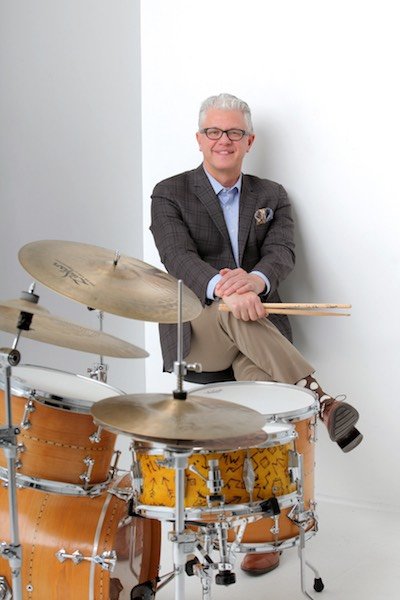Local jazz drummer inspires next generation
Matt Wilson, 57, educates new generation of jazz musicians imparting his historical knowledge, career experience and life philosophies in the classroom. Wilson has been a jazz drummer for about 40 years and teaches at numerous universities, such as New School, San Francisco Conservatory, LIU Post, Sarah Lawrence College and the Prins Claus Conservatory in Gronigen, Holland. Since being named the 2018 Musician of the Year by the Jazz Journalist Association the landscape of the genre has changed, adding fresh faces but still keeping the distinct improvisational sound.
In 1996, Wilson dropped his first record, “As Wave Follows Wave,” with Palmetto records. Back then a decent chunk of the bands take-home was from merchandise sales like CDs. Nowadays, musicians have to work around, and with, streaming services that weren’t available in the past.
“There’s very little commerce now for recorded music, it’s sad…I don’t know if people were always aware how we in the old days at the concerts would sell quite a few CDs after the concert,” Wilson recalled.
Wilson explained that as a teacher, he tries to make the students understand these new unique challenges and teach them ways to adapt. He cited the Jim Carrey 2014 Maharishi University of Management commencement speech where Carrey says, “You can fail at what you don’t want, so you might as well take a chance on doing what you love.”
For Wilson, he said his goal as a professor is “to inspire them and bring out the people… I allowed what was there and encouraged it to come out, and that’s what you’re really proud of is cultivating their spirit which is there.”
He does this by also telling the stories of jazz musicians past, explaining how socially important and influential artists like Miles Davis, Duke Ellington, Nina Simone and many others were in creating the America we live in today.
“Trying to teach students more than their records, like their history, where they came from, their stories. To know [the students] are a part of that continuum and here because of those folks. We wouldn’t be here without the pioneering efforts of these folks,” Wilson explained.
Wilson said he has undergone a personal transformation through respecting and learning about the artists that came before him, “It’s important to know what these struggles or challenges were that I didn’t have, or my generations, or our race…it’s inspiring. I feel I’m always trying to improve as a human being all the time and this music has helped.”
The drum set, which is a distinctly American instrument, summarizes the land it was created in very well. Wilson explained that “it represents our culture as a melting pot,” since it has hints of African, Anglo-Indian, Middle East, Native American and European traditions.
The instrument can however also be personalized, allowing for explorations and personal freedom. “The legacy of Black American music is so important--it’s such a part of the fabric, if not probably the strongest aspect musically, of our culture,” Wilson concluded.
Over the last 15-20 years teaching, many students have reached back and thanked him for taking an interest in their art and encouraging freestyle and experimental practices. He estimated there are “hundreds” of new musicians he’s taught out in there in the world “many of which are the real beacons of the new music.”
Finally, Wilson expressed his sadness for those the pandemic may have snubbed in their infancy, “I feel bad for younger folks [at the start of the pandemic] who had the rug pulled out from under them.”

 39.0°,
Fair
39.0°,
Fair 





